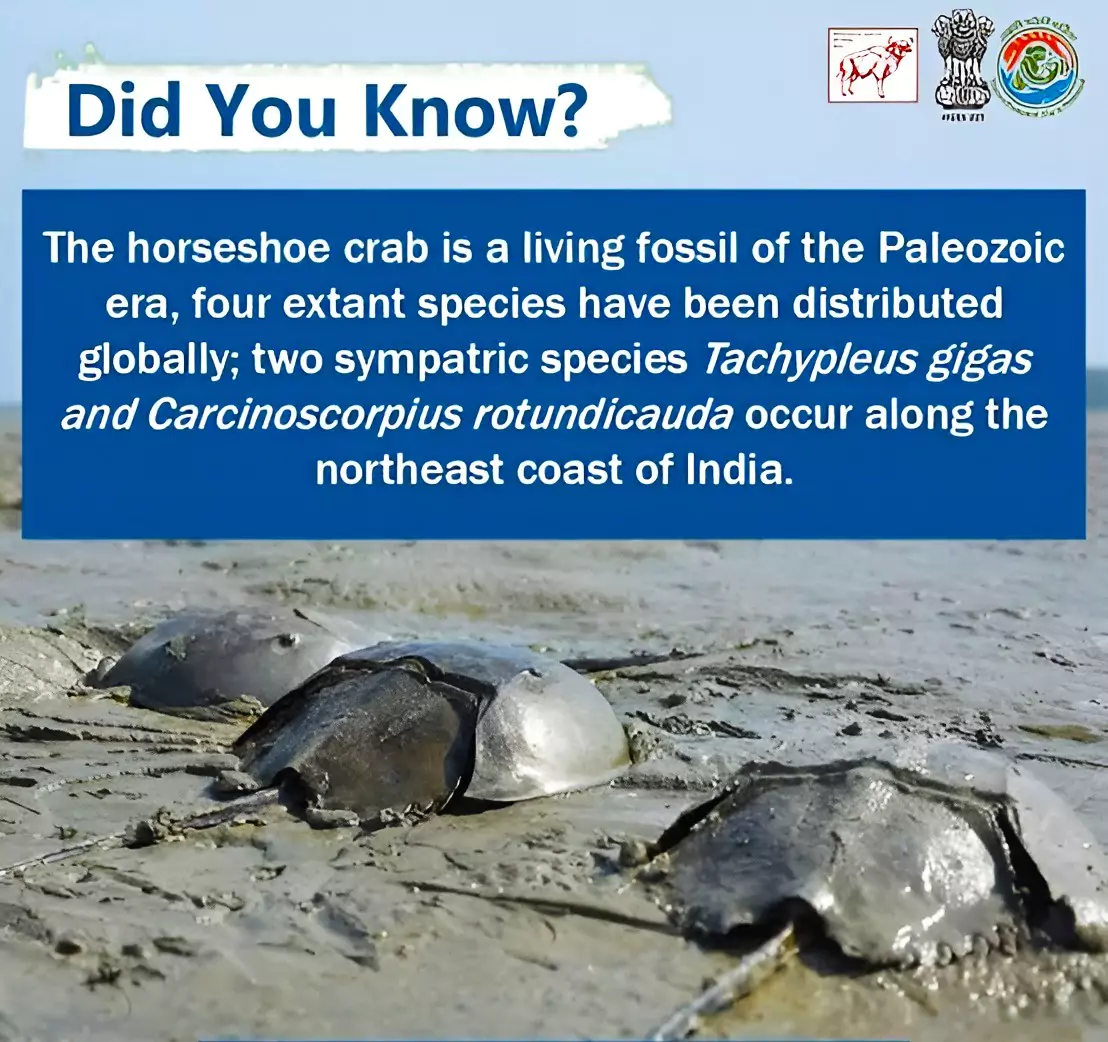![]() 15 Feb 2024
15 Feb 2024
English
हिन्दी
Recently,Environmental groups petitioned the U.S. government seeking protection for the American horseshoe crab, a “living fossil”.

Concerns with their Medical Use :
|
|---|
What are Living Fossils ?
Other Examples of Living Fossils
|
|---|
News Source: The Hindu
| Must Read | |
| NCERT Notes For UPSC | UPSC Daily Current Affairs |
| UPSC Blogs | UPSC Daily Editorials |
| Daily Current Affairs Quiz | Daily Main Answer Writing |
| UPSC Mains Previous Year Papers | UPSC Test Series 2024 |
<div class="new-fform">
</div>